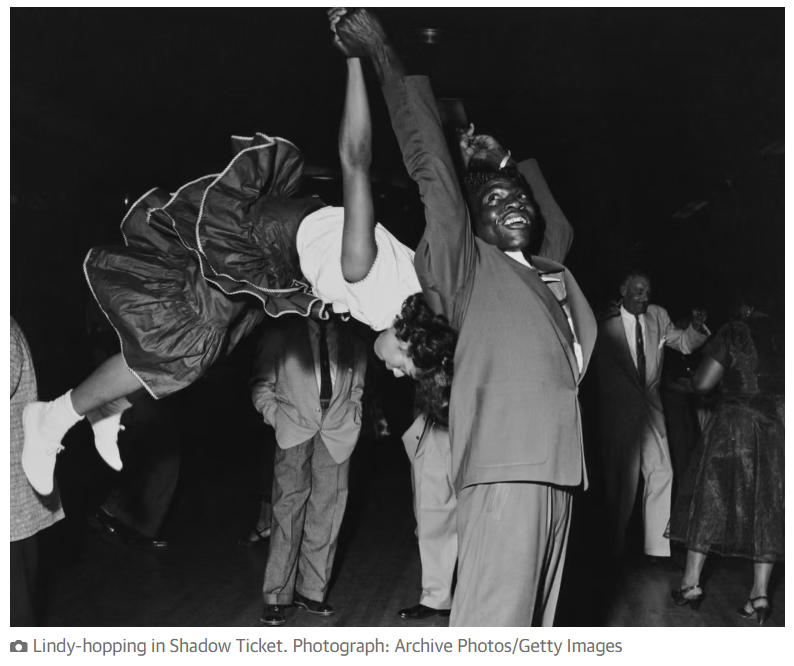Welcome to DU!
The truly grassroots left-of-center political community where regular people, not algorithms, drive the discussions and set the standards.
Join the community:
Create a free account
Support DU (and get rid of ads!):
Become a Star Member
Latest Breaking News
Editorials & Other Articles
General Discussion
The DU Lounge
All Forums
Issue Forums
Culture Forums
Alliance Forums
Region Forums
Support Forums
Help & Search
The DU Lounge
Related: Culture Forums, Support Forums'Shadow Ticket' by Thomas Pynchon review - his first novel in 12 years tunes into rising fascism in the US
The 88-year-old’s jaunty whodunnit, set during the prohibition era, features clowns, Nazis and a missing cheese heiresshttps://www.theguardian.com/books/2025/sep/30/shadow-ticket-by-thomas-pynchon-review-his-first-novel-in-12-years-tunes-into-rising-fascism-in-the-us

Everything is connected in Shadow Ticket, Thomas Pynchon’s fleet-footed noir fiction about a lindy-hopping detective in prohibition-era Wisconsin. The homemade bomb connects to the runaway cheese heiress, the cheese heiress to the federal agents, and the feds to the pro‑Nazi leagues at the bowling lanes outside town. Early-30s Milwaukee, in turn, is connected to powder-keg central Europe, where paramilitary groups have pitched camp on the Hungaro-Croatian border and guest speakers wax lyrical about “our immense fascist future”. Most likely it connects to the current moment as well, albeit wryly and slyly, with a nonchalant swing. That’s the implied final move of this merry dance of a book: the point where the past links its hands with the present.
Shadow Ticket is a Pynchon novel – the 88-year-old’s first in 12 years; his ninth overall – and so it naturally connects to the man’s back catalogue, too, and its abiding fascination with conspiracy, chaos and the churn of American pop culture. Specifically it relates back to his two previous works – Inherent Vice and Bleeding Edge – in that the story comes tailored as a dime-store whodunnit, complete with red herrings, plot twists and reams of hard-boiled dialogue. But classifications, like people, are never entirely to be trusted. Pynchon inhabits the genre like a hermit crab inside a mollusc shell, periodically peeking out from the gloom to remind us that he’s there.
Our Bogart-esque hero is Hicks McTaggart, a semi-professional dancer turned strikebreaker turned dogged, compromised private dick, toiling to hold his position against a surge of rascally clowns and unreliable sources. Hicks is on the trail of Daphne Airmont, the missing heiress, but something about the woman smells iffy, and it may not be the cheese. There are Nazi sympathisers in the halls of power and an Austro-Hungarian U-boat running guns across Lake Michigan. Milwaukee contains Italians, Croatians and “more Germans than you can wave a knockwurst at”, which means that the city’s loyalties are conflicted and it could break either way. The New World, Hicks learns, remains umbilically tied to the old.
All things are connected; that doesn’t mean they add up. Pynchon’s livewire prose hops from subject to subject, joins the dots and makes patterns. There is a pleasing logic to patterns, but they rarely provide explanations, never mind neat solutions; every fresh leap kicks up still further questions. And so it is with the widening gyre of Hicks’s investigation, which spins out of Milwaukee to cross the Atlantic, as spies are gazumped by counterspies and the plot gains in flavour what it loses in momentum. Airmont’s millionaire father styles himself “the Al Capone of Cheese” and is wanted for his role in a counterfeit cheese operation. “Cheese Fraud being a metaphor of course, a screen, a front for something more geopolitical,” explains Egon Praediger, the elegant, coke-sniffing Viennese cop who may turn out not to be a policeman at all. Detective mysteries home in, whereas Pynchon stories unravel. The author respects the genre enough to pay lip service to its rules. But he’s geared towards irresolution and leaves his private eye hanging, blindsided and lost.
snip
